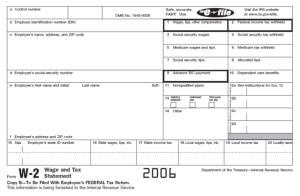Can a plaintiff in an employment discrimination case claim more than one employer? That was the issue the U.S. Court of Appeals for the Seventh Circuit decided earlier this year in a case filed by a construction foreman laid off from his job (Love v. J.P Cullen & Sons). Walter Love argued that a general contractor of a project he worked on should be considered his employer for the purposes of Title VII, despite the fact that he was hired and laid off by a subcontractor of a subcontractor used by the general contractor. The court upheld the trial court’s decision to dismiss the case.
 Love was hired by Union Contracting, Inc. (UCI), which was a subcontractor for Eugene Matthews, Inc. (EMI), which was a subcontractor for the general contractor, J.P. Cullen & Sons, Inc. (Cullen). Cullen was in charge of a renovation project of Milwaukee’s city hall. Love claimed he was fired because of his race, African American, and that Cullen was an employer and responsible for his discharge. The trial court dismissed the case without going into the merits of Love’s claims.
Love was hired by Union Contracting, Inc. (UCI), which was a subcontractor for Eugene Matthews, Inc. (EMI), which was a subcontractor for the general contractor, J.P. Cullen & Sons, Inc. (Cullen). Cullen was in charge of a renovation project of Milwaukee’s city hall. Love claimed he was fired because of his race, African American, and that Cullen was an employer and responsible for his discharge. The trial court dismissed the case without going into the merits of Love’s claims.
UCI hired Love as a foreman. UCI received direction from Cullen, which it passed onto Love. Cullen’s contract with EMI gave EMI the right to investigate alleged misconduct by its subcontractors’ employees and to discipline them if necessary, including permanently removing them from the job site. Cullen made the final decisions regarding the presence of any worker on the project site.
Love and another African-American construction worker were involved in a confrontation during the project, the nature of which was disputed. Cullen’s superintendent ultimately decided both should be removed from the site, though UCI’s superintendent asked that Love only be suspended for a day. UCI had no other work available for Love, so he was laid off.
The basis of Love’s discrimination claim is that a similar physical altercation between two Caucasian employees resulted in no significant discipline and Cullen tolerated racially discriminatory behavior and language by workers despite Love’s complaints about them.
Table of Contents
ToggleWhen Is a Party an Employer?
To have a valid Title VII claim, the plaintiff must prove there was an employer-employee relationship with the defendant, though there can be more than one employer. The appeals court found Cullen was not Love’s employer based on a five-part test.
- The extent Cullen controlled or supervised the plaintiff, including whether it provided direction with respect to scheduling and performance of the work.
The court stated this was the most important factor, especially hiring and firing. It found UCI hired Love and Cullen only removed Love from the project. It was UCI that actually laid him off because there was no other work for him.
- The type of occupation and nature of the skills required for the plaintiff’s position, including whether these skills are obtained in the workplace.
According to the court, Love received minimal instruction from Cullen in the form of safety training, and it was likely he could use the information he learned from these trainings on other construction jobs.
- Whether Cullen was responsible for the costs of operation, including the costs of equipment, supplies, fees, licenses, the workplace, and maintenance of operations.
Cullen’s contract with EMI required that EMI furnish all materials, equipment, and services necessary to complete its work. It was EMI, not Cullen, that ultimately provided materials to Love.
- Whether Cullen was responsible for providing payment and benefits to Love.
Love received all paychecks and W–2s from UCI, not Cullen. The court found no evidence Cullen paid Love for his work or that it provided him any other benefits, such as insurance or vacation time.
- The length of the employee’s job commitment and/or the expectations of the parties.
Love worked on the city hall project for about eight months. Love intended to stay with UCI (not Cullen) after the city hall project was completed. There was no evidence of any expectation by Cullen that Love would continue to work on its projects or that Love expected the same.
Love claimed that even if Cullen weren’t an employer under this test, it should be held responsible because it made the decision that led to his layoff. The appeals court found that an entity other than the direct employer could be considered an employer under Title VII if the entity directed the discriminatory act, practice, or policy the employee complained about.
The court didn’t buy Love’s argument, because it found Cullen only removed Love from the work site, and it was UCI that laid him off. Therefore, Cullen couldn’t be considered an employer.
Summing It Up
It’s becoming more common that people work as contractors or subcontractors, and many companies are trying to distance themselves as far as possible from “employees” and the costs and regulations that come with them.
Though Love was unsuccessful, each case is decided on its own merits.
This case demonstrates the following important points:
- The law and how the courts interpret is not “cut and dried” as to whether an employee-employer relationship exists.
- Even if you’re not an “employee” on paper, that doesn’t mean you’re not an “employee” as far as discrimination law is concerned.
- This can be a highly technical area, both factually and legally, so if you think you’re the victim of discrimination by a party that denies it’s an “employer,” you should contact an attorney to discuss the situation.
If you have any questions about employment law generally or discrimination law in particular, contact the Spiggle Law Firm today so we can discuss what your situation is, what laws may apply, and how they may be applied in your situation.






